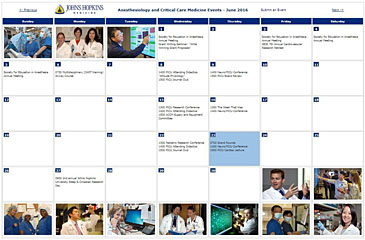 Paul Nyquist MD, MPH, is a full time tenure track faculty who works in the Neurocritical unit and is a member of the Neurocritical care division as well as the cerebrovascular division. He is presently a professor of Neurology, Anesthesiology & Critical Care Medicine, Neurosurgery, and General Internal Medicine at the Johns Hopkins University School of Medicine. He is a clinician /researcher with a history of program building who has gained national and international prominence as part of an international community of specialists in the genomics and translational biology of stroke and issues pertaining to critical care. He is a recognized translational cerebrovascular researcher focused on systems biology, the genomics of ischemic white matter disease, and brain Injury. He is an expert on decompression illness and was a project officer and principal investigator at the Navy Medical Research Institute where he held leadership positions in key human decompression trials and completed important research on the effects of diving on complement activation in human divers. He is part of large international genetic consortiums including: the NEUROCHARGE consortium, the International Stroke Genetics Consortium. He is a PI in the GeneSTAR group. He has participated in many large multi-centered international trials such as the SWISS, IMS3, FAST, and DIAS as a co-investigator or site PI.
Paul Nyquist MD, MPH, is a full time tenure track faculty who works in the Neurocritical unit and is a member of the Neurocritical care division as well as the cerebrovascular division. He is presently a professor of Neurology, Anesthesiology & Critical Care Medicine, Neurosurgery, and General Internal Medicine at the Johns Hopkins University School of Medicine. He is a clinician /researcher with a history of program building who has gained national and international prominence as part of an international community of specialists in the genomics and translational biology of stroke and issues pertaining to critical care. He is a recognized translational cerebrovascular researcher focused on systems biology, the genomics of ischemic white matter disease, and brain Injury. He is an expert on decompression illness and was a project officer and principal investigator at the Navy Medical Research Institute where he held leadership positions in key human decompression trials and completed important research on the effects of diving on complement activation in human divers. He is part of large international genetic consortiums including: the NEUROCHARGE consortium, the International Stroke Genetics Consortium. He is a PI in the GeneSTAR group. He has participated in many large multi-centered international trials such as the SWISS, IMS3, FAST, and DIAS as a co-investigator or site PI.
Dr. Nyquist graduated from the University of Michigan’s LSA, honors program in 1986 with distinction in; Zoology/Anthropology, and Psychology, and high honors in Zoology/Anthropology. He matriculated to medical school at the George Washington School of Medicine in 1988, where he earned a joint MD and MPH, graduated with distinction and was inducted into Alpha Omega Alpha medical honors society upon graduation. During medical school he received a Health Professional Scholarship from the Navy and was inducted into military medical service in the Navy upon graduation.
He completed his internal medicine internship at the National Naval Medical Center in Bethesda (now the Walter Reed Military Hospital), and completed Navy Undersea Medical Officer training becoming a second class Navy deep-sea diver, as well as radiation health officer. He served as an undersea medical officer, principal investigator, and project officer at the Naval Medical Research Institute in Bethesda Maryland from 1993-1996. There he managed the organization and operation of experimental dive trials including deep saturation dives (deeper than 1000 fsw) as well as deep bounce dive trials (deeper than 300 fsw). While there, he was an experimental diver with the largest number of dangerous dives. He was a decompression illness medical expert, on call for the Navy worldwide dive watch guiding treatments internationally for military and civilian victims of decompression sickness. He directed human health monitoring and was the medical monitor for many dive trials. He completed a Neurology residency at the Mayo clinic, a Stroke fellowship at the national institute of neurologic disease and stroke (NINDS).
After training he was recruited as the Stroke director at INOVA Fairfax hospital in northern Virginia. He completed the groundwork for the establishment of their NCCU. He began his academic career there, as a full time assistant professor for the Medical College of Virginia, now Virginia Commonwealth University, and a clinical assistant professor for George Washington and Georgetown medical Schools. He was the clerkship director for the MCV medical school neurology rotation at Fairfax hospital and was the director of the Georgetown Psychiatry residency Neurology rotation.
Dr. Nyquist was recruited to Johns Hopkins through the Department of Neurology, initially as a stroke attending with an outpatient clinic. He finished an abbreviated fellowship in the Johns Hopkins Neurocritical care unit (NCCU) and became a full time NCCU attending with appointments in Neurology, Anesthesia/Critical Care Medicine, and Neurosurgery with an adjuvant appointment in General Internal Medicine. The NCCU is now the focus of his clinical activity. He still attends in the stroke unit. He is a translational researcher with past NIH RO-1 funding.
Dr. Nyquist has created and published original research involving brain injury focusing on the role of inflammation in brain injury. He has over 100 google scholar publications. He began his research career while in the Navy publishing key papers on immune activity in human participants of deep diving, specifically studying complement activation, and leukocyte sequestration in animal models and humans. While a fellow at the NIH, he discovered new single nucleotide polymorphisms in the non-coding UTR region of the promoter of MCP-1. He discovered in-vitro biological activity and potential key binding proteins of one SNP. In collaboration with GeneSTAR and the NCI, he identified a clinical association of these SNP’s to asymptomatic carotid atherosclerosis in a clinical population in Baltimore.
This collaboration resulted in a study of ischemic white matter disease (WMH) of the brain in this population. Dr. Nyquist as the principal investigator, under the mentorship of Diane Becker, applied for and received funding from the GCRC, and completed a pilot study on WMH in the GeneSTAR population. This led to a large funded NINDS RO-1 of which Dr Nyquist is the principal investigator. This RO-1 was funded in a time of extreme austerity at the NINDS and was one of the largest funded RO-1 of that year. Dr. Nyquist as principal investigator applied for and received a supplement for genomic micro-array work demonstrating monocyte gene activation.
These protects are now nearing completion and have successfully recruited over 840 participants into a complex clinical/translational paradigm. This cohort is possibly the best phenotypically characterized vascular study population in existence. It is one of the first family based studies to have extensive vascular and genetic phenotyping to include: GWAS, whole exome array, RNA seq., and micro-array data, as well as detailed cardiac and brain 3T MRI volumetric phenotypes. The identification of associated public health risks of siblings and offspring of probands with onset of coronary artery disease before the age of 60, would affect the future health of millions of Americans. So far discovery in this population includes: neurological functional impairment in young participants with WMH, monocyte activation associated with increased WMH, and an association of WMH and coronary atherosclerosis. This data is the basis of a new grant application on the role of activated monocytes in WMH with the goal of developing a therapeutic target for WMH in this preclinical population. Dr. Nyquist has been the principal investigator of this project, which is part the GeneSTAR.
Dr. Nyquist leads other research on intracranial hemorrhage (ICH) and aneurysmal subarachnoid hemorrhage (aSAH). He has written numerous articles on ICH, he was site PI for the FAST trial and other stroke clinical trials, and has recently identified an association between haptoglobin and ICH outcomes. He has written or participated in numerous grant applications including an RFA for the acute stroke network and is a co-investigator on a new grant in preparation for the MISTIE 3 trial. He has developed consortium on haptoglobin in intracranial hemorrhage. He is now beginning an investigation focused on WMH in septic patients in the ICU.
